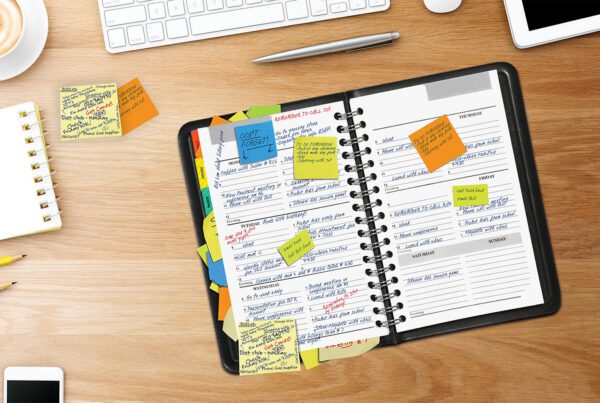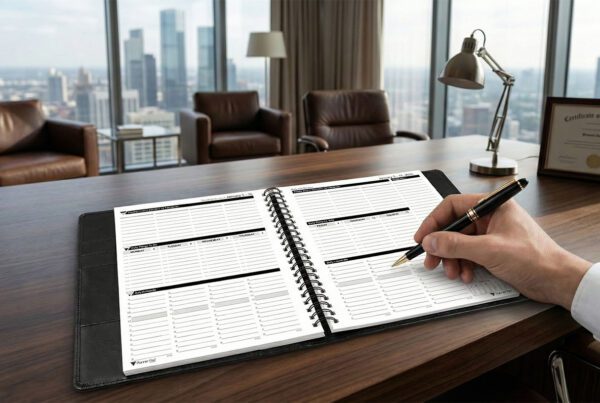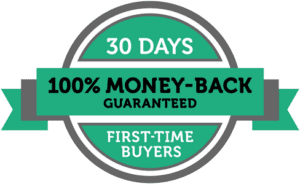Getting organized isn’t just about writing to-do lists or color-coding your calendar. It’s about finding a system that works with how your brain functions—something that helps you think clearly, plan wisely, and act consistently. Whether you’re a student, teacher, professional, or entrepreneur, a well-structured planner or business organizer can be the tool that transforms chaos into clarity.
In a world of scattered apps and endless notifications, paper-based tools remain among the most reliable—and one of the few that can deliver lasting results. Here’s how you can use a structured organizer to build focus, manage your time, and get things done.
What Makes a Planner Truly Effective
While many planners focus on aesthetics or surface-level tracking, effective planning systems provide a clear path from ideas to execution. Research shows that writing things down by hand improves memory, focus, and follow-through. According to a study from Dominican University, people who write down their goals are 42% more likely to achieve them.
To be effective, a planner should:
- Offer a visual structure for categorizing tasks
- Help you balance both short-term and long-term priorities
- Work seamlessly across personal and professional life
One such system is the Planner Pad Organizer, which uses a unique funnel-down method that allows you to break priorities into action—something most planners overlook.
Weekly and Daily Planning That Actually Works
One of the biggest pitfalls of traditional planners is a narrow focus on daily checklists without tying them back to broader goals. True organization happens when you can see the big picture while managing day-to-day responsibilities.
A planner built on a logical structure, like the Planner Pad, helps you:
- Identify high-level priorities at the start of each week
- Break them into actionable daily tasks
- Avoid over-scheduling and mental overload
The weekly-to-daily flow helps busy users manage everything from project deadlines and meetings to errands and personal goals—without needing multiple notebooks or apps.
How Different Roles Can Benefit From Paper-Based Planning
Organizers are not just for one type of user—they adapt across many lifestyles. A well-designed paper planner can support people in all kinds of roles:
For Professionals
Keep track of meetings, emails, goals, and projects all in one space. The structured format of a tool like the Planner Pad Organizer can help busy professionals prioritize high-value work and reduce task-switching.
For Business Owners
Juggling marketing, operations, client work, and finances can quickly become overwhelming. A clear planning structure allows entrepreneurs to:
- Categorize tasks by department or focus area
- Set and track business goals
- Manage time more efficiently without relying solely on digital tools
For Students
Stay on top of assignments, deadlines, and study sessions. Writing things down not only helps with retention but also gives students a clear map of their academic week.
For Teachers
With lesson plans, grading, parent meetings, and personal responsibilities, teachers need a comprehensive system. A planner with room for weekly planning and flexible categories offers much-needed clarity and balance.
Core Features of a Functional Business Organizer
When choosing a planner or organizer, look for features that do more than provide empty boxes. A functional system should help you think as much as it helps you track.
Look for:
- ✅ A tiered layout to move from ideas to execution
- ✅ A place for both weekly planning and daily scheduling
- ✅ Flexibility for both personal and professional tasks
- ✅ Durable design and customizable layouts
- ✅ Optional accessories for appointment tracking, note-taking, or contacts
The Planner Pad product line checks all these boxes by helping users go from category to task to calendar—making it one of the few tools that consistently helps people stay organized.
Frequently Asked Questions About Using a Planner to Get Organized
Q: Can a paper planner really replace my apps?
Yes—many people find that once they start using a well-structured planner, their reliance on scattered digital tools decreases. The physical act of writing helps with clarity, focus, and intentionality.
Q: I’ve tried other planners and failed. What’s different here?
The Planner Pad system is more than blank pages—it’s a structured planning method. It helps users move from high-level thinking to actionable daily steps, which is where most other planners fall short.
Q: Is this suitable for both work and personal life?
Absolutely. The design allows you to manage different roles (parent, professional, student, etc.) in one space without blending everything into one overwhelming list.
Conclusion: A Better Way to Organize Your Life
Getting organized doesn’t require more apps—it requires a better system. A structured planner that mirrors how you think, plan, and act can be the key to consistency and calm. Whether you’re managing a business, teaching a classroom, or just trying to juggle life’s responsibilities, a paper-based system can give you control over your time.
Explore how the Planner Pad Organizer works, and browse the available formats to find the right fit for your workflow.








